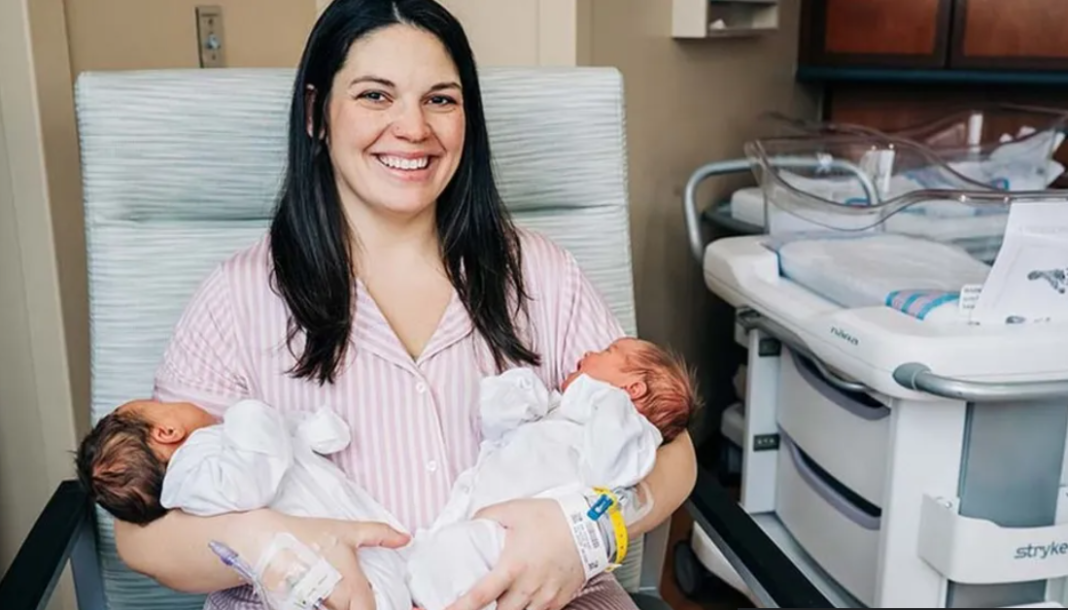(BBC News) A U.S. woman with a rare double uterus has given birth twice in two days – after a “one in a million” pregnancy and a total of 20 hours in labour.
Kelsey Hatcher, 32, delivered one daughter on Tuesday, and a second on Wednesday, at the University of Alabama at Birmingham (UAB) Hospital.
Announcing the arrival of her “miracle babies” on social media, Hatcher hailed the medics as “incredible”.
The girls are described as fraternal twins – with separate birthdays.
Hatcher said the family was back at home to “enjoy the holidays”. She had a Christmas Day due date.
A UAB obstetrician confirmed that the trio was doing well, and told the BBC it was the sort of case that most people in her profession “go through their entire careers and never see.”
Hatcher was told at age 17 she had a double uterus (uterus didelphys) – which the UAB described as a rare congenital anomaly affecting 0.3% of women.
And the odds of becoming pregnant in both uteri – a dicavitary pregnancy – were even slimmer, at “one in a million,” according to the UAB.
Reported cases worldwide are extremely rare. In 2019, a doctor in Bangladesh told the BBC a woman had given birth to twins almost a month after delivering a premature baby in her other uterus.
Hatcher had three previous, healthy pregnancies. This time, she believed herself to be pregnant in only one uterus – until a routine ultrasound revealed there was also a baby in her second.
“I gasped… We just could not believe it,” she recalled.
She went on to document her unusual journey on Instagram. One update at 38 weeks asked: “What the heck?! HOW have we made it this far?!”
The UAB described her pregnancy as routine. Professor Richard Davis, who co-managed the delivery, pointed out that each baby had enjoyed “extra space to grow and develop.”
This was because each baby had a womb to itself, he said – unlike in a typical twin pregnancy.
Hatcher’s labour was induced at 39 weeks, and required double the monitoring and charting at the hospital.
This proved to be “the most atypical” part of Hatcher’s case, said Dr Shweta Patel from the hospital’s obstetrics and gynaecology team.
UAB staff did not have “a lot of evidence or data” to hand, Dr. Patel told the BBC, and were required to apply their knowledge of typical pregnancies.
Sure enough, the babies had a “mind of their own”, she said – and were delivered by different methods.
The first, Roxi, was born vaginally at about 19:45 local time on December 19. The second, named Rebel, came by C-section more than 10 hours later.
Davis said the girls could be called fraternal twins – a term used when each baby develops from a separate egg, each fertilized by a separate sperm.
“At the end of the day, it was two babies in one belly at the same time,” he said. “They just had different apartments.”


